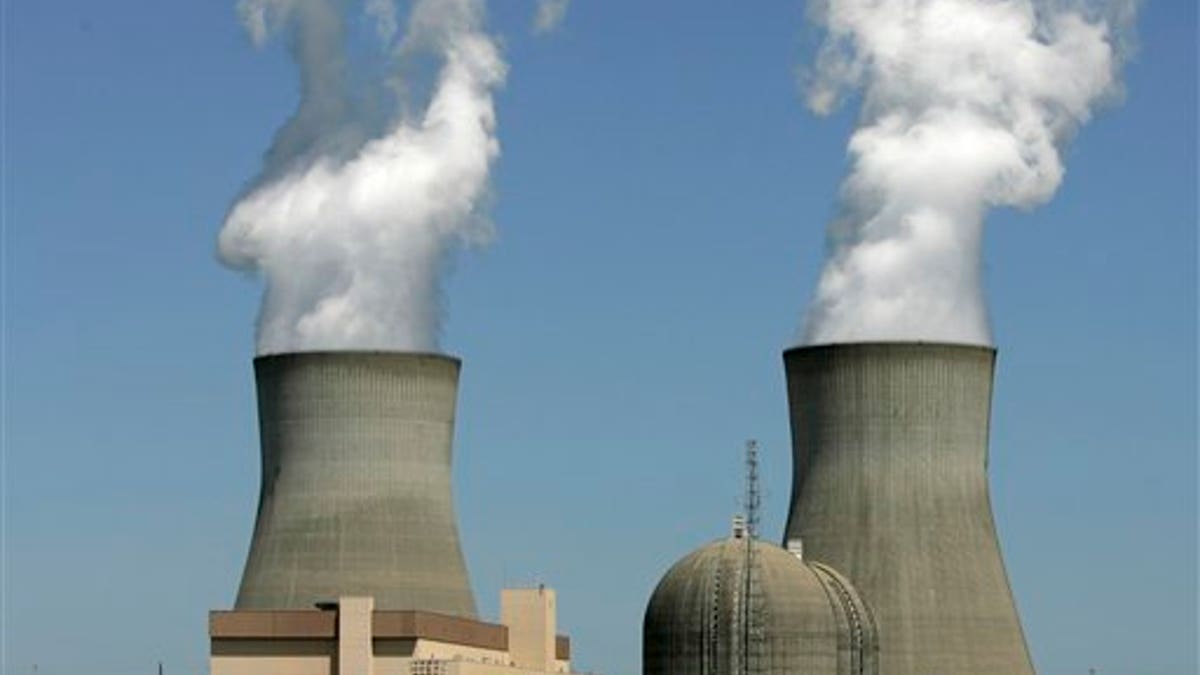
April 28: Steam rises from the cooling towers of nuclear reactors at Georgia Power's Plant Vogtle, in Waynesboro, Georgia. (AP2010)
WASHINGTON – The Nuclear Regulatory Commission has approved the first new nuclear power project in more than three decades.
The panel on Thursday approved plans from Southern Company for two reactors at a Georgia site. The $14 billion reactors could begin operating as soon as 2016 and 2017.
The NRC last approved construction of a nuclear plant in 1978, a year before a partial meltdown of the Three Mile Island nuclear plant in Pennsylvania raised fears of a radiation release and brought new reactor orders nearly to a halt.
The NRC approved a new reactor design for the Georgia plant in December. Utility companies in Florida and the Carolinas also plan new reactors that use the same design by Westinghouse Electric Co.
The planned reactors are remnants of a once-anticipated building boom that the power industry dubbed the "nuclear renaissance."
President Obama has offered the Georgia project $8.3 billion in federal loan guarantees as part of its pledge to expand nuclear power.
Obama and other proponents say greater use of nuclear power could cut U.S. reliance on fossil fuels and create energy without producing emissions blamed for global warming. A new government permit process strongly encourages utilities to use pre-approved reactor designs rather than building custom models, a strategy intended to make construction easier and less expensive.
The once hoped-for boom has been plagued by a series of problems, from the prolonged economic downturn to the sharp drop in the price of natural gas, due in part to improved drilling techniques that have allowed energy companies to tap previously unavailable underground shale formations.
The nuclear disaster in Japan last year also increased scrutiny of the industry and led to a series of recommendations by the NRC to improve safety at the 104 U.S. nuclear reactors. The changes are intended to make the plants better prepared for incidents they were not initially designed to handle, such as prolonged power blackouts or damage to multiple reactors at the same time.
The agency also has proposed increased protection against earthquakes, floods and fires.
The Georgia project is considered by many observers to be a major test of whether the industry can build nuclear plants without the delays and cost overruns that plagued earlier rounds of building decades ago.
The Associated Press contributed to this report.




